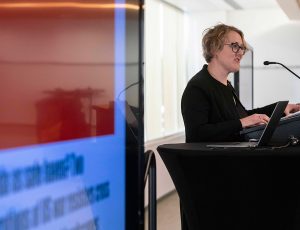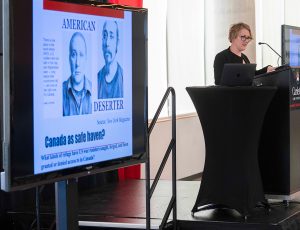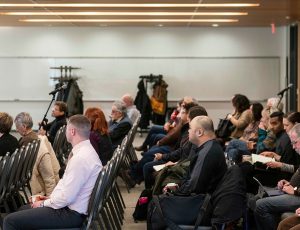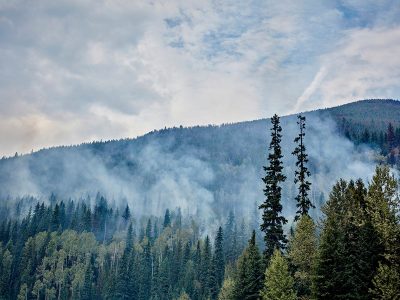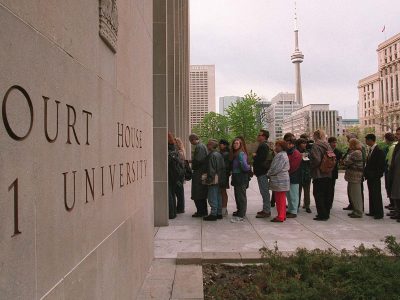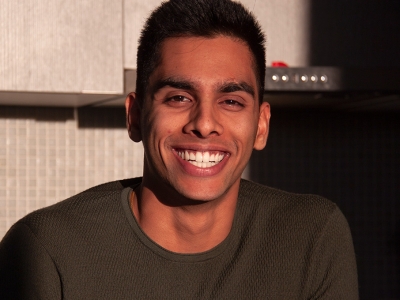War resistors are a very particular kind of migrant – and a very politicized kind. During the Vietnam War era, tens of thousands of war-resisting Americans fled to Canada, and their integration into Canadian society helped cement the country’s peace-loving image. But when U.S. soldiers began fleeing to Canada to resist the War on Terror in the 2000s, politicians were less welcoming.
“In 1970, Prime Minister Pierre Trudeau famously said that Canada should be a refuge from militarism,” says Alison Mountz, Canada Research Chair in Global Migration at Wilfrid Laurier University’s Balsillie School of International Affairs.
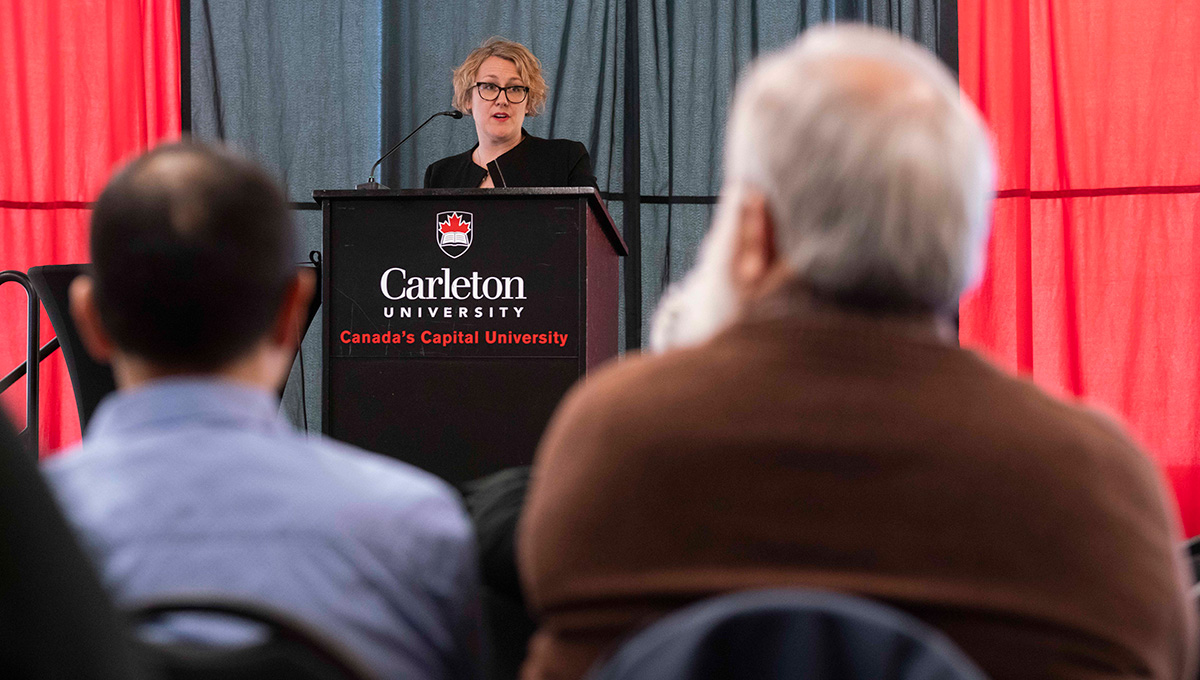
Alison Mountz
At Richcraft Hall on January 29, Mountz delivered “Canada as a safe haven?”, a lecture that illuminated the very different experiences of two generations of U.S. war resistors. In the first lecture in what is planned to become an annual event on Borders and Migration within the FPA Research Series, Mountz shared insights from archival research and video footage from an upcoming documentary film on the oral histories of war resistors.
“In 2009, Jason Kenney – then the Minister of Immigration under the Harper administration – publicly referred to U.S. resistors who filed refugee claims as ‘bogus refugees’.”
This type of interpretation of is often rooted in their voluntary enlistment in the U.S. military. But that assessment is problematic, says Mountz.
“It overlooks some of the reasons why people enlist. It is important to problematize the idea of voluntary enlistment because many people who came to Canada during this time have stories of having few choices. Military enlistment is highly classed and highly racialized. People often enlist for livelihood, to access health insurance and to access higher education.”
Iraq war resistors were far fewer in number than Vietnam war resistors had been – just a few hundred, compared to tens of thousands. Some claimed that military recruiters had lied to them. Even in war zones, many soldiers never see combat. Overseas wars involve thousands of enlisted support staff who maintain equipment, manage logistics and plan operations. Some resistors claimed they had been assured they would perform this type of work – then found themselves training for combat. It wasn’t what they’d signed up for. Still, every Iraq war resistor’s refugee claim was denied.
Vietnam war resistors had very different experiences, though Mountz notes that entry to Canada could be more difficult for deserters than it was for draft dodgers avoiding mandatory service.
“The first cohort essentially came as immigrants,” Mountz says. “They filed their applications, and they were assessed with the points system.”
“This was a much simpler time for people who were coming. Many filed applications when they arrived, and tell stories of driving back to the border a few months later for a formal interview, then being handed their landed immigrant status – what would today be called permanent residency.”
Mountz shared the story of a war resistor named John – not his real name – who fled to Canada in 1971.
“John’s flight to Vietnam was scheduled to depart, and he decided to leave,” Mountz says. “He came to Canada in a Volkswagen with his partner, his belongings packed into the trunk like Russian dolls.”
“They used a wedding dress to cover their candles, records, clothing and a few books – and told the border guard they were coming to B.C. on their honeymoon. The border guard wished them a good holiday, and they drove straight to meet with a community organization in Vancouver. A few months later, a border officer put his hand on John’s back and said ‘Welcome to Canada’.”
Yet in spite of John’s legal immigration status, the border – and the experience of war resistance – lingered.
“John has described how this history follows him. He has moved progressively farther away from the border – starting out in Vancouver and Victoria, then eventually moving into the interior. He still has nightmares and remembers this stressful time, recalling each detail like it was yesterday.”
For many war resistors, the Canada-U.S. border was more than a fixed place or territorial delineation. It played a key role in where and how they lived his lives. In the coming years, Carleton’s Borders and Migration lecture series will continue to interrogate how borders connect, divide and distribute people.
“This lecture series is not about migration in a generic sense, nor is it another research initiative devoted to borders in all their multiplicity,” says William Walters, who is sponsoring and organizing the lecture series.
Walters is a professor of Politics in Carleton’s Political Science and Sociology & Anthropology departments. He currently holds a Research Excellence Chair with the Faculty of Public Affairs.
“It’s about seeing and understanding migration from the angle of borders, and conversely, borders from the angle of migration.”
Wednesday, February 5, 2020 in Faculty of Public and Global Affairs, Sociology and Anthropology
Share: Twitter, Facebook
